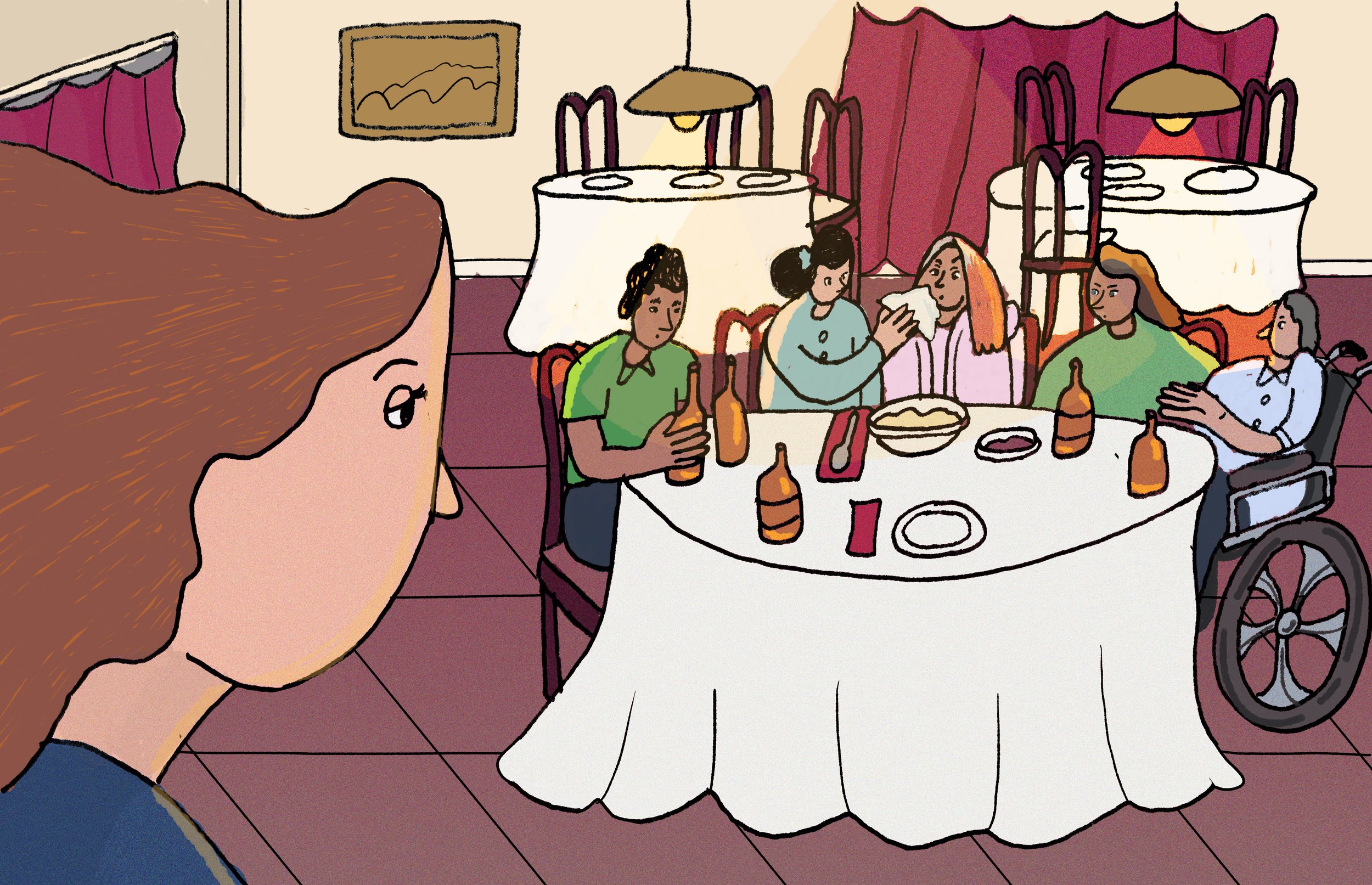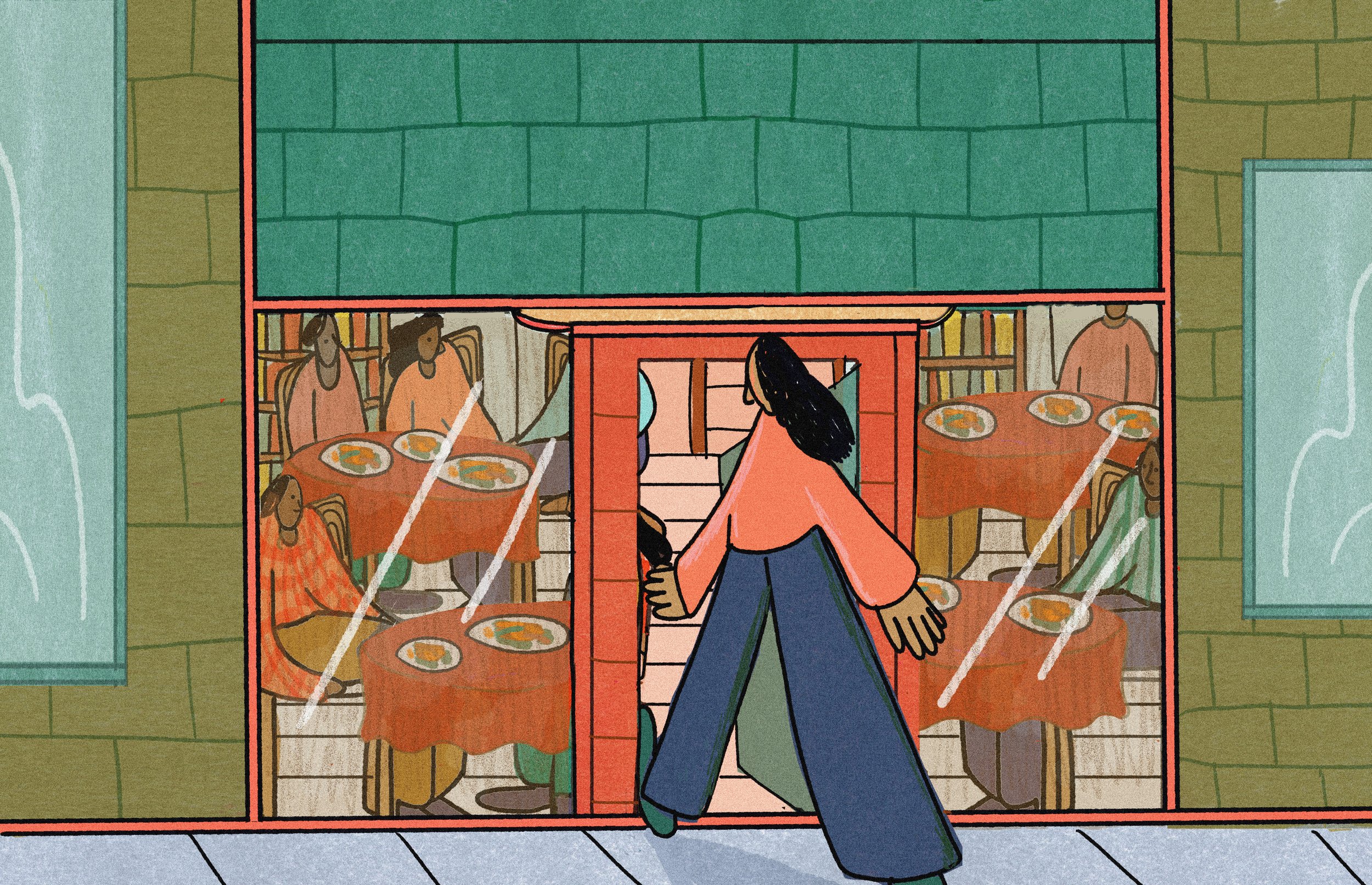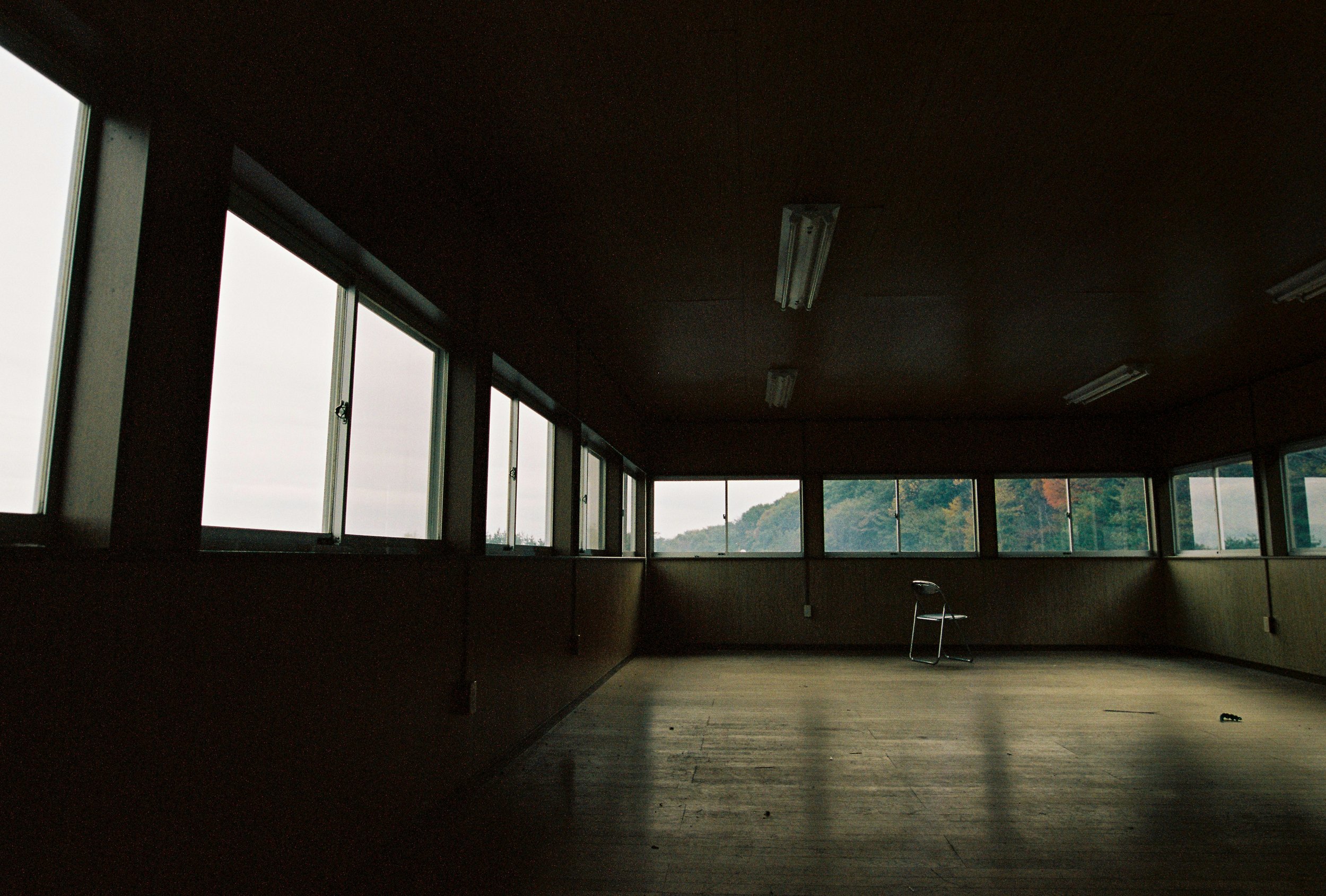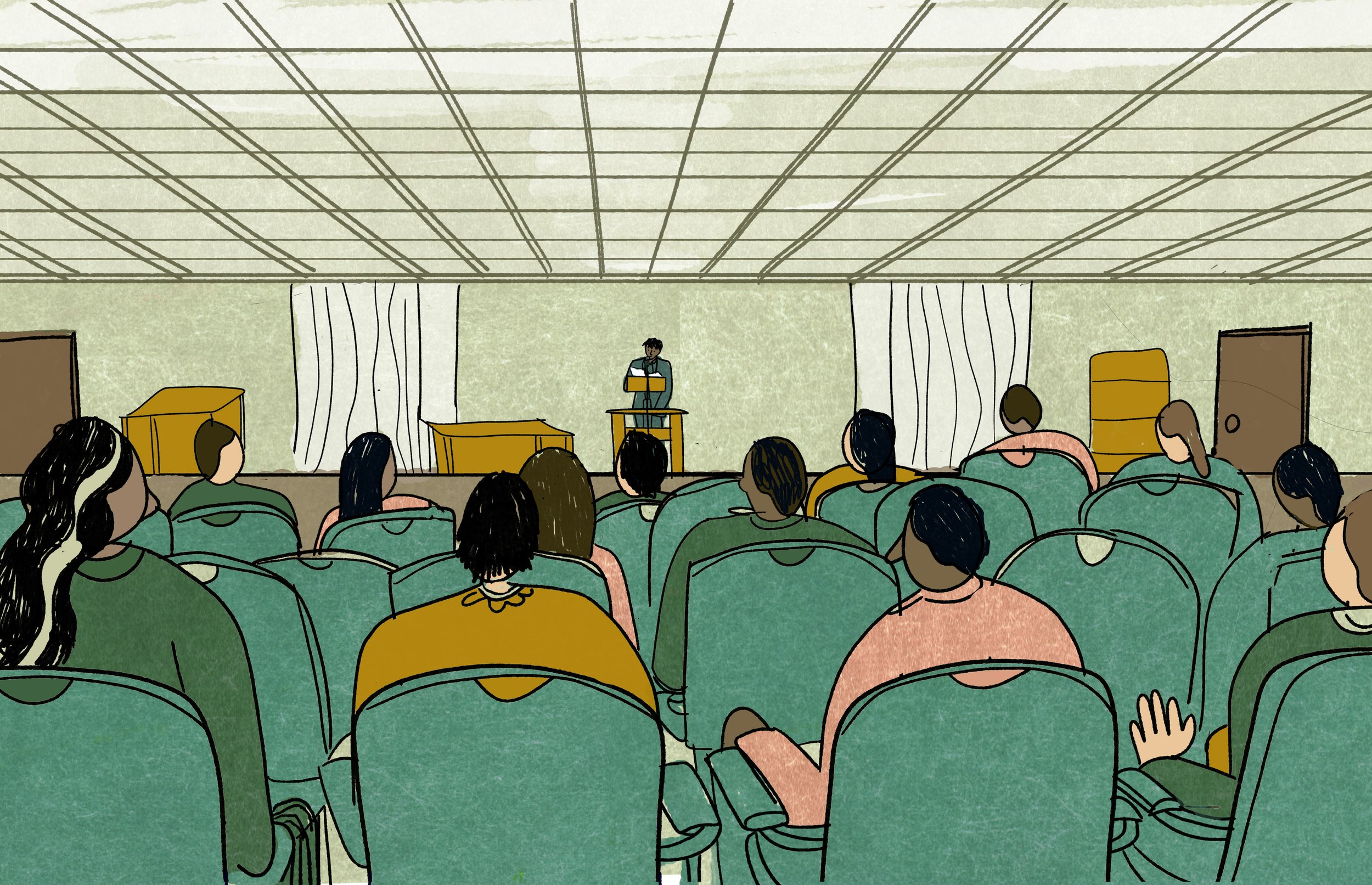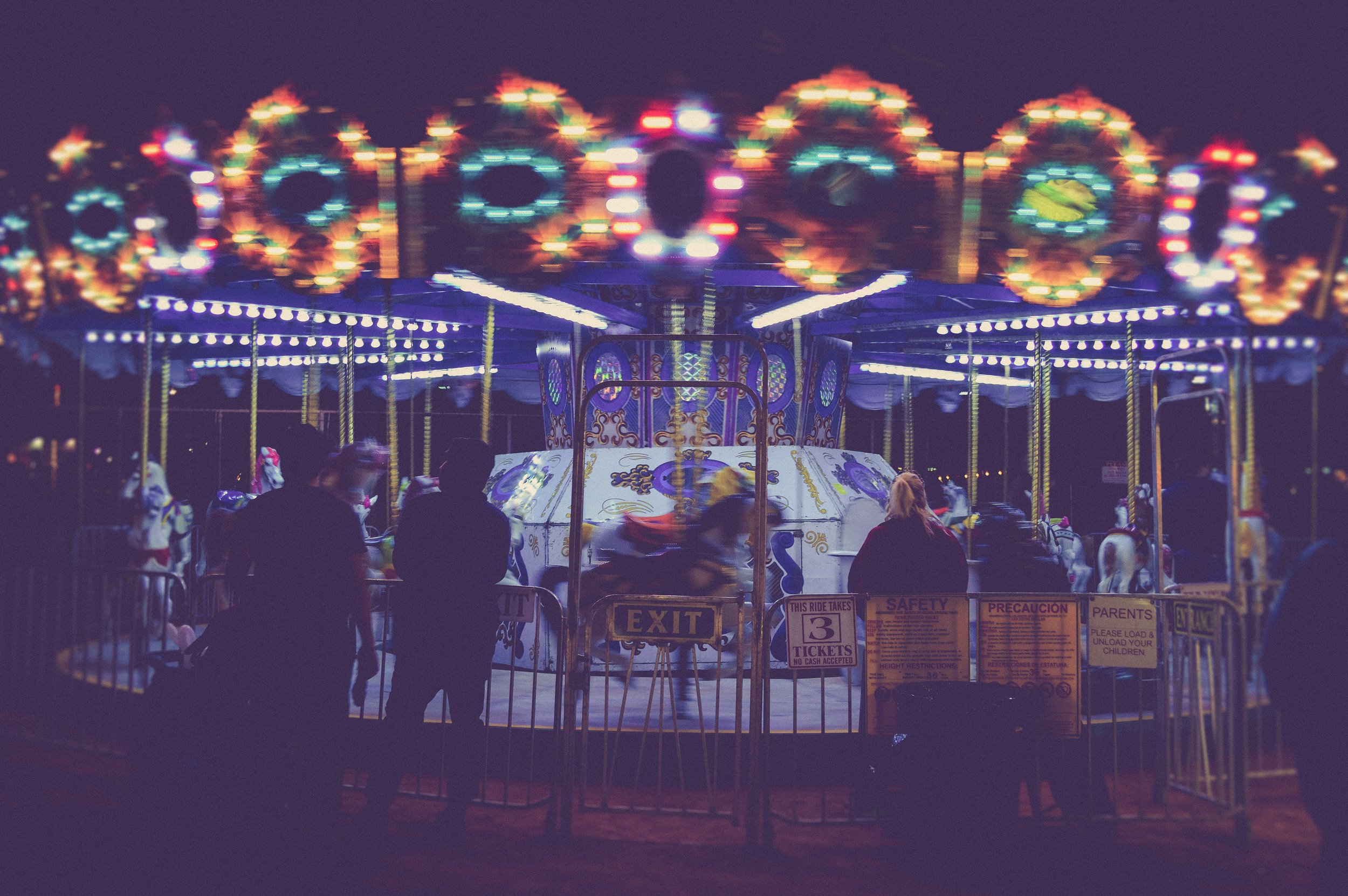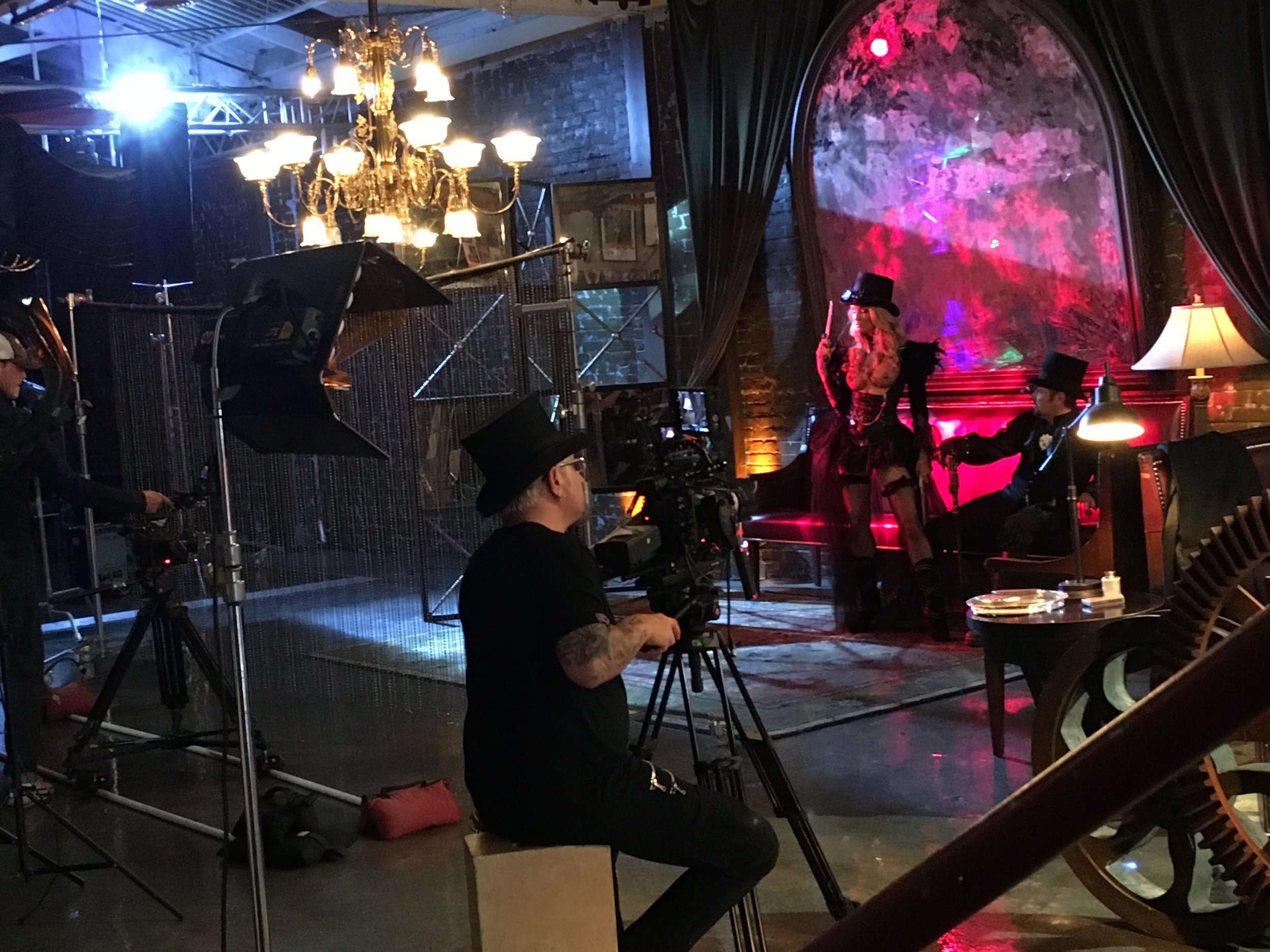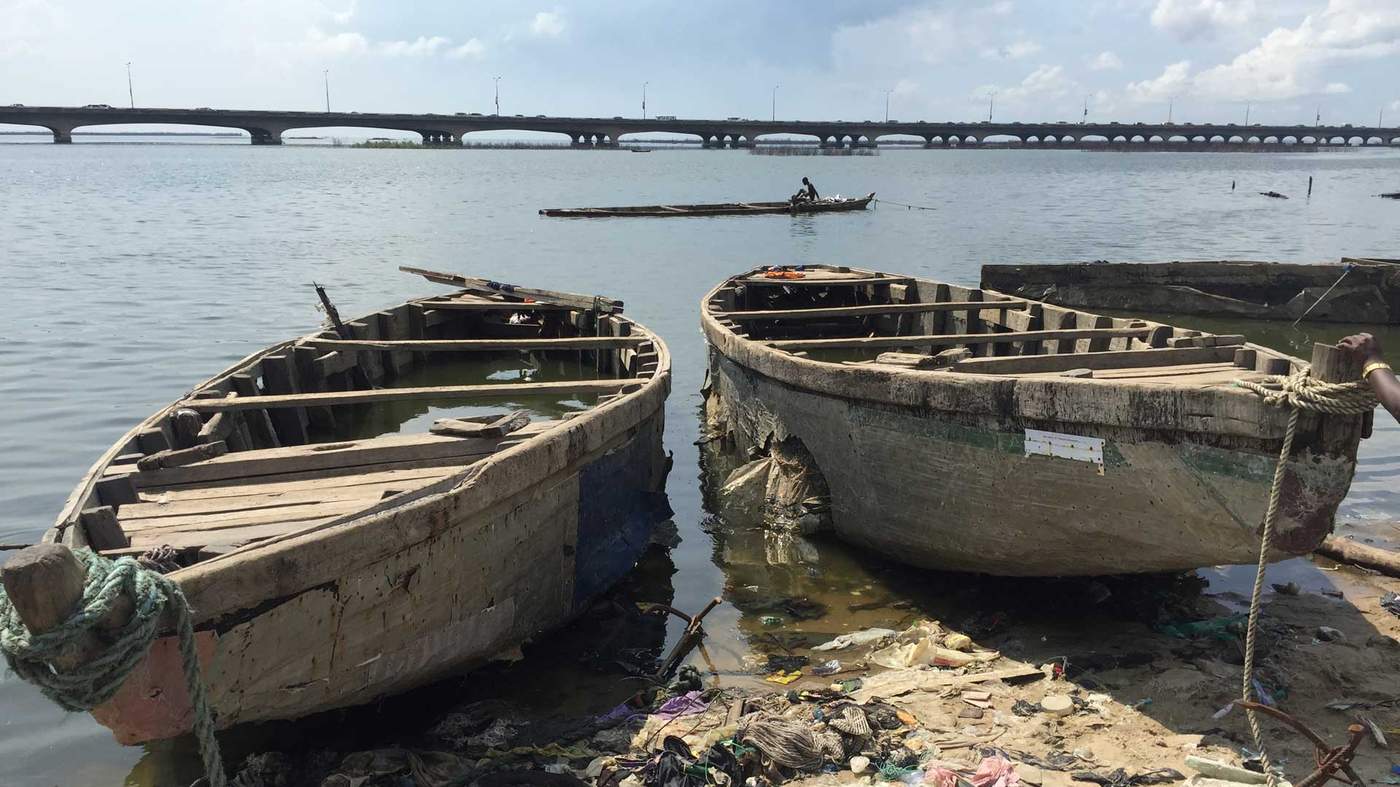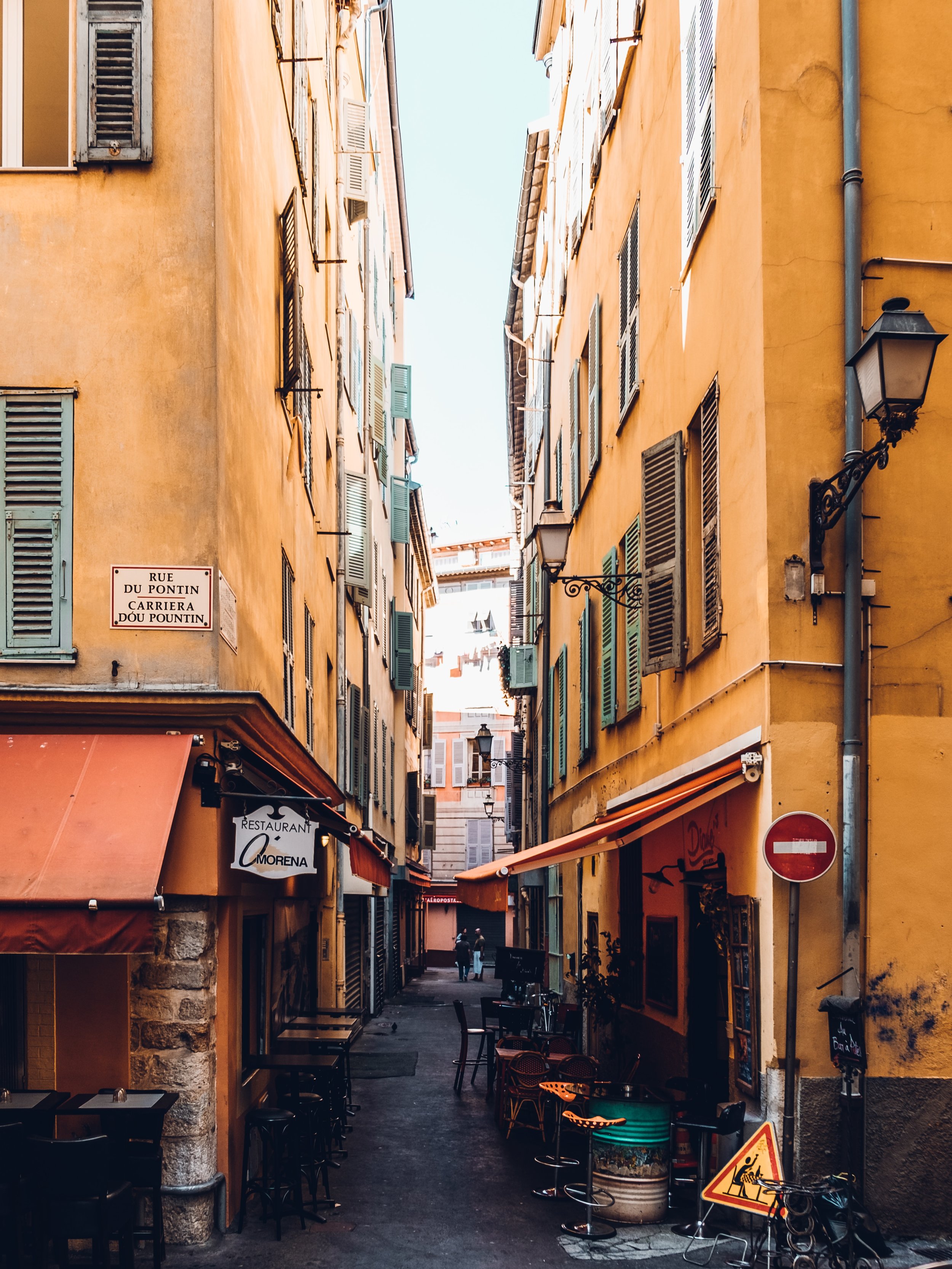Behind the Briefings: Elaina Plott
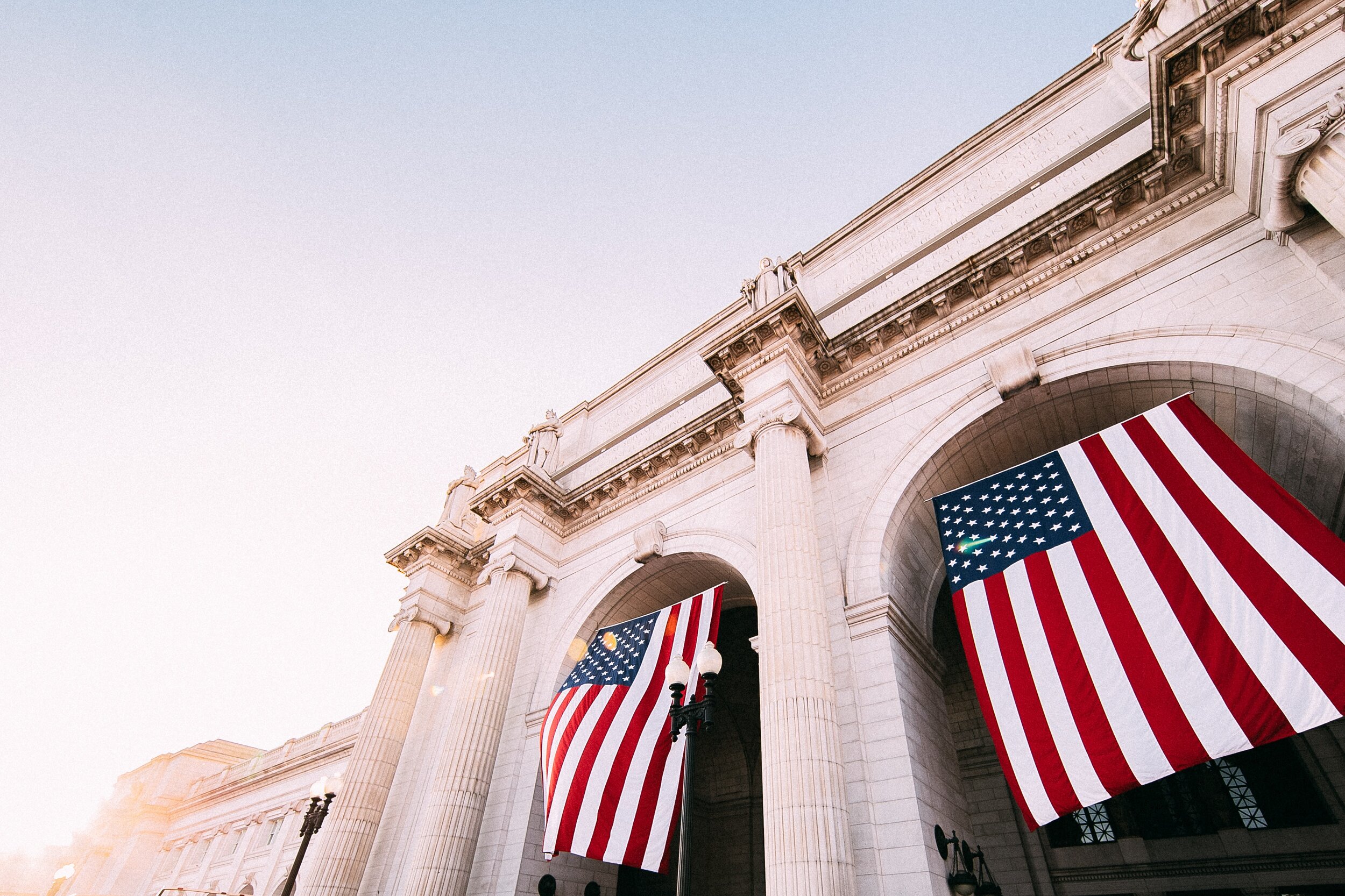
We tend to place non-fiction writers on opposite ends of a spectrum: at one end, high-metabolism news-breakers who arrange their scoops into sentences; at the other, artists slowly distilling their experiences into perfect jewels on the page. Perhaps nowhere is that conceptual dichotomy clearer than in Trump’s Washington, where one of the city’s most up-to-the-moment sources, Axios, usually arranges its articles into bullet points rather than traditional paragraphs.
But as with most binaries, this turns out to be a false one. Elaina Plott, White House correspondent at The Atlantic, is one of the DC journalists whose work bridges the imagined gap between juicy scoop and perfectly crafted sentence.
Since joining The Atlantic in January 2018, Plott has covered Scott Pruitt’s shady dealings at the EPA, written a personal essay about growing up “in a gun-loving town in Alabama” and America’s complex relationship with guns, attended Trump rallies across the country, and crafted revealing profiles about in-the-spotlight figures like Ivanka Trump.
OA’s Isabelle Taft caught up with Plott—also a former "Behind the Briefings" columnist—to talk about cultivating sources in Trump’s Washington, reporting profiles people didn’t know they needed, and writing sentences that stay with you.
OA: You wrote a profile on Heidi Cruz, the wife of Senator Ted Cruz. I was curious about how you landed on her as a subject. When I read the piece, I thought, ‘I had no idea that I wanted to read this.’ I hadn’t even realized how little I knew about Heidi Cruz.
EP: When I'm thinking of profile subjects, I often start with who I find interesting and who I have questions about—whether they're famous or not. Heidi was someone who I had always wondered about. I say this as a woman. During the presidential campaign, when Trump attacked her looks so publicly and so crudely, I remember always wondering how that felt. I think, as a journalist, what drives a lot of my story ideas is just wondering how somebody felt in a particular high-profile moment. The great thing about working at a magazine is that I had the freedom to pursue that question without as much concern for a news peg. So, I just reached out to see if I could interview her, and when she said yes, I didn't even have a clear angle in place for why I should go out there. It turned out to be a fascinating interview that said so much about women in politics today, spouses in politics today. It's still one of my favorite pieces. It just started from the question of how it felt to be this person in this moment.
OA: Why do you think she agreed to do the interview?
EP: I don't know. I wondered that a lot. A lot of bloggers after I published that story speculated that the Cruz team had come to me because they wanted a profile of her ahead of his election, his race against Beto. And that couldn't be further from the truth. If anything I wish they had come to me because it would have made the process go a lot faster. I started reaching out to them I think in April and it wasn't until August that they made time for this. It was a lot of push and pull.
“It’s so rare in politics that you sit down with somebody and ten minutes in realize, ‘Wow, this person’s actually going to be real with me.’”
The sense I got from her as soon as we sat down was that she had this story she had been wanting to tell for quite some time. I actually didn't ask a lot of questions in that interview. It felt like I was in the midst of like some big catharsis that was taking place on her end. I can only speculate as to her motivations, but I imagine that she just had a lot of things she wanted to say and I happened to ask her at the right time.
OA: Were you surprised by how open she was in that interview?
EP: I was surprised. It was a joy. It's one of my favorite interviews I've ever done because I think it's so rare in politics that you sit down with somebody and ten minutes in realize, ‘Wow, this person's actually going to be real with me.’ I felt like I was actually learning things, as opposed to trying to decode subtle language hints, or studying the carriage of her head or her body language in ways that you usually have to with politicians to try and understand what they're actually thinking. More likely than not, they're not going to be real people with you. They tend to come off as pretty hollow. In a very first interview with somebody, to immediately feel like I was getting to the core of someone or further beneath the surface than I usually do with people, was a completely enthralling feeling.
OA: At what point in the reporting and writing process did it become clear that this was a story about professional women making sacrifices for their marriage and this particular woman sacrificing her high-powered career for Ted Cruz?
EP: I think that became clear to me when I re-listened to the whole interview. In the midst of the interview, I was sort of like, "Where am I going with this in my head, what kind of story is this turning into?" And in that moment I didn't know. And you shouldn't know usually, in that moment. But when I transcribed it, by the end of those two and a half hours, I thought, "OK, this is what she was really getting at that whole interview." That's what I'm always trying to do in profiles anyway—I don't think you should ever rest on the conceit of your subject and their fame in general to get you through a story. You need to convince your readers that they should keep reading beyond the first section, beyond just the fact that this is the wife of a famous senator. Always being able to find that thesis, that big idea, is really important to me.
OA: There was some criticism of the profile on Splinter, claiming that it was a puff piece. They mentioned one of the pieces you wrote for the Washingtonian, “I was a Teenage Ann Coulter Fangirl!” I was wondering how you respond to that, when people invoke some of your first-person writing on your experiences with politics to criticize you work.
EP: I try not to pay much attention to it. If anything, I think that it adds value to my work if you know that if I've been upfront about where I've been ideologically throughout my life at certain points. I think I've been pretty transparent about that. There are a lot of people right now who believe that—with Republicans or anyone on the Right—if you write a piece that does anything beyond calling them Satan in every single sentence, that you've written a puff piece. More broadly, that the idea of trying to understand the interiority of someone is somehow less worthwhile journalism, which I just disagree with.
OA: Do you think political journalism would be more interesting if more reporters wrote about their own experiences with politics and ideology?
EP: I think if reporters are going to do that it has to be in a very intentional way. I would never advocate being gratuitous about making your biases clear. With the Anne Coulter piece and the guns piece, those were two instances in which my editors and I thought I had something maybe different or interesting to say about what was a very newsy conversation at the time. At the same time though, if I'm writing a story like I did yesterday about Trump and his attachment to issues like immigration and trade, I'm not going to add a gratuitous paragraph about how I first started to understand issues of trade when I saw this segment on Fox News. I think it has to be done in a very deliberate and intentional way, to have a reader say, "Ok, I understand why they wrote this."
OA: One of your more recent well-circulated profiles was about Ivanka, who—unlike Heidi Cruz—is much more in the public eye. How did you land on this idea to profile Ivanka?
EP: They had actually reached out to me in December because she was about to unveil her WGDP initiative, which promotes women's global economic parity, and asked if I would want to join her on her trip to Africa and do a longer piece about those initiatives. I thought that was an incredible opportunity. I had reached out to them about maybe doing something, and I did an off the record with her, but they never got back to me after that so I assumed it was dead. Then, they sort of revived it. But after we [at The Atlantic] published our impeachment cover, they said they wanted nothing to do with me.
What I wanted at that point was to do a profile of her. She was sort of a cipher to me and I thought she would be a pretty interesting window into what it's like to work in this West Wing, her father's psyche, and what she believes she and her husband are accomplishing.
“In a very first interview with somebody, to immediately feel like I was getting to the core of someone or further beneath the surface than I usually do with people, was a completely enthralling feeling.”
I was all-in at that point and I was bummed that I wouldn't get the access I thought I would get, but pretty soon when they realized that I was gonna keep making calls. I remember them saying to me, "We thought we told you we were done with this, we don't want to do this." And I said, "You said you don't want to do it; I didn't say I don't want to do it." I think once they saw I wasn't going to stop, that I was serious—they didn't ever give me an interview with her but they started to help me more with getting in touch with people close to her. But that was at the very end. Within a week of us publishing, they were saying things like, "Do you want to talk to this person, that person?" They did that for Jared. I said of course, I'd love to. They hadn't been that helpful up to that point.
That was a valuable moment for me in just showing that you don't need the person themselves to do a really great piece, as long as you're just committed to making a million phone calls a day and knocking on doors. It can oftentimes work out.
OA: When she walked into your interview with Pres. Trump, was that something you'd been expecting?
EP: I hadn't been expecting it, but it was the kind of thing where right when it happened it was an "of course!" moment. You just live for those moments as a reporter, when something happens and you're immediately like, "That's my lead." That's perfect, it's emblematic of everything I've been sketching out in my notes about this person up to this point. The staged-ness. This idea of cultivated authenticity. That whole scene fit that to a tee. In the midst of it, I thought, "This is gold. Thank you!"
OA: You broke stories about Scott Pruitt handing out inappropriate salary raises to favored aides relatively soon after starting at The Atlantic. Can you talk about how you got your first tips?
EP: I love this question. I have thought about the answer a lot, because I think for me it really proves how important source cultivation is, even when you’re not sure that source will be useful to you in that particular moment. So the people who ended up being my best EPA sources are actually people who I knew entirely outside of the context of the EPA. I had met some of them a year before and had just been introduced to them by someone else who thought they might be helpful for another story. I sort of lapsed in terms of staying in touch with them, and then learned that they were in the EPA and all this Scott Pruitt stuff was happening, so I reached out again and re-started these relationships.
I think as a journalist you can get comfortable with the few people you know because they prove out for you as useful time and again. The EPA was a perfect example of being someone who had no experience of covering the EPA. It's not like I had a particular knack for that area or topic set, it was more that I just happened to keep up relationships with people who ultimately went into the EPA. So stay close with your sources, even if you're not talking to them for a story at that moment. Reach out to them, ask about them, ask how their kids are, how their wives and husbands are, grab a drink and just catch up off the record. It's good to form real relationships with people.
OA: When you reached out to them, did it feel like they were waiting for someone to approach them so they could share what they knew?
EP: Yeah. I think one of the reasons I loved covering Pruitt so much is that it was a sort of rare instance that you had political aides who were eager to talk about their boss's transgressions. I think a lot of times as reporters we're trying to convince sources the value of coming forward with certain information or talking to us even anonymously when they really don't want to. But in this case, there were aides who were saying things along the lines of, "We're seeing really ethically questionable things take place within this agency, and we think that the public should know about them." To be able to be the vehicle for telling that story was a really cool feeling as a reporter, and I think it’s what we all want to feel when we start out as journalists.
OA: Are there writers whose work you turn to if you're thinking about how to structure a piece or how to move forward on a project you're working on?
EP: One thing I do a lot as I work on a big profile and get in slumps—which I do all the time—is read this piece called "A Landmark Gone" by Lawrence Durrell. It's not a profile, it's not a piece of political journalism. It's just a piece of really mesmerizing writing, and it really helps to remind me what I'm trying to accomplish. I don't want to just break news or have interesting insights about a person. I want to write sentences that stay with you. And that piece in particular; every sentence stays with me every time. I read that and it kind of inspires me to get out of my funk and keep trying.
Follow Elaina Plott on Twitter.
ABOUT THE INTERVIEWER
Isabelle Taft is a journalist and a former Princeton-in-Asia Fellow in Hanoi, Vietnam. She served as an intern at The Sacramento Bee and POLITICO Magazine. Her last “Behind the Briefings” interview for OA was a conversation with Univision correspondent Janet Rodriquez.
Header photo by Caleb Fisher

